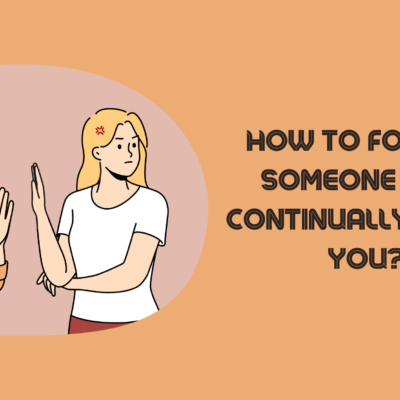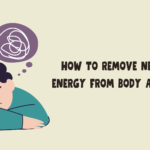How to Forgive Someone Who Continually Hurts You: Forgiveness is often described as a virtue, a way to find peace and let go of resentment. But what happens when the person you are trying to forgive keeps hurting you over and over again? Whether it’s a family member, a friend, or a partner, continually being hurt by someone can leave deep emotional scars.
Forgiving someone who repeatedly causes pain is challenging. It requires strength, boundaries, and self-care. Forgiveness does not mean tolerating mistreatment or allowing yourself to be manipulated. Instead, it is about releasing anger for your own well-being while also making choices that protect you.
This article will explore the meaning of true forgiveness, why it is important, and practical steps to forgive someone who continually hurts you—while also protecting yourself from further harm.
Also Read:
- How to Stop Excessive Daydreaming?
- How to Stop Constant Worrying and Overthinking?
- Repressed Anger Treatment: Understanding and Overcoming Suppressed Emotions.
Understanding Forgiveness
What Forgiveness Is (and Isn’t)
Before we dive into the process of forgiving, let’s clarify what forgiveness actually means:
- Forgiveness is letting go of resentment and anger. Holding onto these emotions can hurt you more than the person who caused the pain.
- Forgiveness is for your own peace of mind. It doesn’t necessarily mean reconciling with the person or allowing them to keep hurting you.
- Forgiveness is not forgetting. You don’t have to erase the past to forgive. You can learn from it while moving forward.
- Forgiveness is not excusing bad behavior. If someone keeps hurting you, they must be held accountable for their actions.
- Forgiveness is not a sign of weakness. It takes immense strength to forgive while also protecting your own well-being.
If someone continually hurts you, it’s important to set boundaries and decide whether the relationship is healthy for you. Forgiving them does not mean tolerating their behavior.
Why Forgiveness is Important
1. It Frees You From Emotional Burden
Holding onto anger and resentment keeps you emotionally tied to the person who hurt you. Forgiveness allows you to let go of that weight.
2. It Helps You Heal
Unresolved pain can lead to stress, anxiety, and even physical health issues. Forgiveness promotes healing and inner peace.
3. It Breaks the Cycle of Hurt
When someone continuously hurts you, it’s easy to react with bitterness. However, carrying that negativity can influence your own actions and relationships. Forgiveness helps you break free from that cycle.
4. It Gives You Control Over Your Emotions
When you refuse to forgive, the other person still has power over your emotions. Forgiveness allows you to reclaim control and focus on your own happiness.
Steps to Forgive Someone Who Keeps Hurting You
1. Accept Your Feelings
It’s okay to feel hurt, angry, or betrayed. Suppressing these emotions won’t make them go away. Acknowledge your pain without judgment.
Action Tip: Write down your emotions in a journal. This helps you process your thoughts and understand how the person’s actions have affected you.
2. Set Boundaries to Protect Yourself
If someone repeatedly hurts you, forgiveness should be accompanied by boundaries. Otherwise, you may keep getting hurt.
Action Tip: Ask yourself: What behaviors am I no longer willing to tolerate? Then, communicate your boundaries clearly.
For example:
- If a friend constantly insults you, tell them, “I will not continue conversations where I am disrespected.”
- If a partner repeatedly lies, let them know, “Trust is important to me. If this continues, I will need to step back.”
3. Understand Why They Hurt You
This doesn’t mean justifying their behavior, but understanding the reasons behind their actions can help you process the pain. Some people hurt others because of their own insecurities, past trauma, or lack of emotional intelligence.
Action Tip: Ask yourself: Is this person hurting me intentionally, or do they lack awareness?
This perspective can help you decide whether to maintain the relationship or distance yourself.
4. Choose Whether to Keep the Relationship or Walk Away
If someone continuously hurts you despite your efforts to set boundaries, you may need to reconsider the relationship.
- If they are willing to change and respect your boundaries, the relationship may be worth saving.
- If they continue to hurt you without remorse, distancing yourself might be the best choice for your well-being.
Action Tip: If someone repeatedly disrespects or manipulates you, seek advice from a trusted friend, mentor, or therapist to help make the best decision.
5. Focus on Your Own Healing
Forgiveness is about freeing yourself from emotional pain, not fixing the other person. Prioritize your own healing by practicing self-care.
Ways to Heal:
- Meditation & Mindfulness: Helps you stay present and let go of past pain.
- Exercise & Healthy Lifestyle: Physical activity can reduce stress and anxiety.
- Talking to a Therapist: A professional can help you navigate your emotions.
- Engaging in Hobbies: Creative activities like painting, writing, or music can be therapeutic.
6. Practice Letting Go of Resentment
Forgiveness doesn’t happen overnight. It is a process that requires conscious effort.
Action Tip: When resentment arises, remind yourself: “Holding onto this anger is hurting me more than them.”
A simple yet powerful affirmation to repeat:
“I choose to let go of this pain. I deserve peace and happiness.”
7. Limit Your Expectations
Some people never change. If you expect someone to suddenly become a better person, you might be disappointed. Accept that they may never apologize or acknowledge the hurt they caused.
Action Tip: Shift your focus from “They need to change” to “I deserve to be at peace regardless of their actions.”
8. Find Closure Within Yourself
Sometimes, we wait for an apology that never comes. True closure doesn’t come from the other person—it comes from within.
Action Tip: Write a letter to the person expressing all your feelings, but don’t send it. This exercise helps you release emotions and find closure.
9. Surround Yourself With Supportive People
Being hurt repeatedly can make you feel isolated. Surround yourself with people who uplift and respect you.
Action Tip: Spend more time with friends, family, or mentors who genuinely care about your well-being.
10. Forgive, but Don’t Forget
Forgiving someone doesn’t mean allowing them back into your life. It means releasing the anger while learning from the experience.
Action Tip: Reflect on what this situation has taught you. Have you learned to set better boundaries? Have you grown emotionally stronger? Use the experience to build healthier relationships in the future.
Final Thoughts
Forgiving someone who continually hurts you is difficult, but it is possible. True forgiveness is about freeing yourself from emotional pain while also setting boundaries to protect your well-being.
If someone keeps hurting you, you don’t have to allow them to remain in your life. You can forgive and still choose to walk away. Your peace of mind and happiness should always come first.
At the end of the day, forgiveness is not about them—it’s about you. It’s about reclaiming your power, letting go of negativity, and creating a life filled with peace, love, and self-respect.








